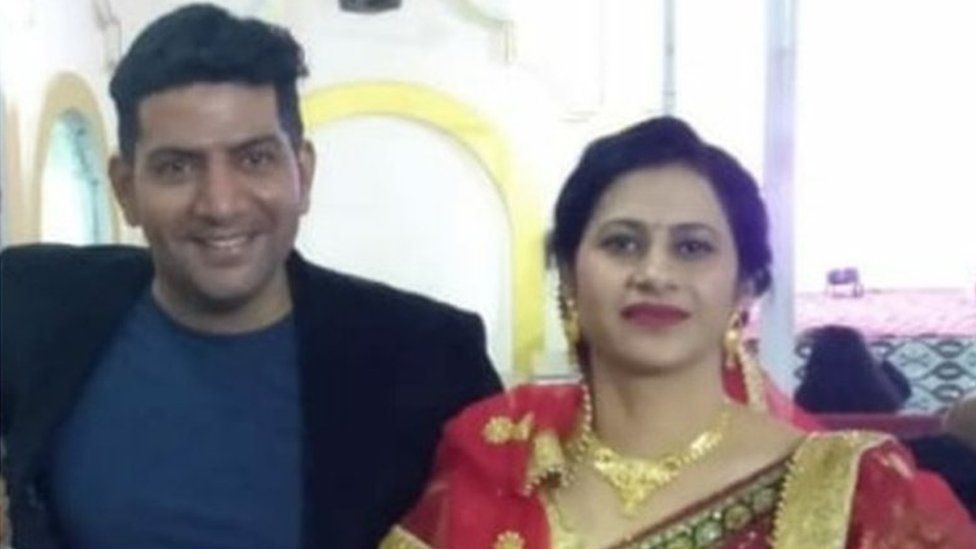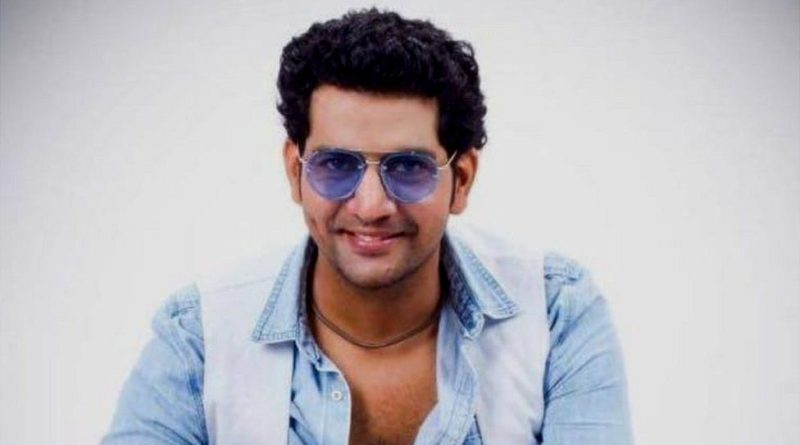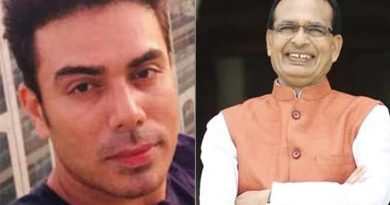Ashutosh Kaushik: Indian actor fighting for the ‘right to be forgotten’
Ashutosh Kaushik wants the court to grant him the “right to be forgotten”
How long should you be punished for a mistake?
That’s the crux of Indian actor and reality show celebrity Ashutosh Kaushik’s petition that the Delhi high court is due to hear on Thursday.
The actor wants the court to grant him the “right to be forgotten”, stating that his life is still being held hostage to a mistake he “erroneously committed more than a decade ago”.
Experts say the “right to be forgotten” – or the “right to erasure” – is simply the right to have your publicly available personal information removed from the internet. Although the right is recognised in the European Union – where it’s not absolute – it’s a fairly new concept in India and still not covered by law.
Kaushik hit the headlines when he won the fifth season of reality show MTV Roadies in 2007 and Bigg Boss – the wildly popular Indian version of Big Brother – a year later.
The wins, he says, earned him “accolades, love and appreciation of people from across India”.
But fame gave way to infamy when, a year later, he was caught drink-driving.
A court ordered him to pay a fine of 2,500 rupees ($33; $25) and his driving licence was suspended for a year. He was also ordered to remain in court until the end of the day.
The incident made headlines because he was a celebrity. News reports, photographs and videos of what happened still populate the web and anyone searching for the actor can find them.
This, he says, has cost him dear – both personally and professionally.
“I was 27 then. I got everything I wanted so early in life. I’d lost my father and there was no-one to guide me. I was inexperienced and made a mistake and I was punished for it. But I’m 42 now, and I feel I’m still paying the price,” Kaushik told me on the phone from Mumbai.

After the incident, he said, people started shunning him.
“Now the first impression people form of me is bad. I have lost out on work, I’ve been rejected for marriage several times, and every time I move home, my new neighbours look at me strangely.”
His banker wife, Arpita, who married him in the summer of 2020, says her family has been prejudiced against her husband from the start because of the videos they saw on the internet.
“My relatives were very concerned about his past. My brother refused to accept our marriage and still doesn’t talk to me. But I feel that everyone makes mistakes in life, so why should my husband be penalised for a lifetime?”
Kaushik adds, “When a court sentences an accused, it’s for a ‘term’, so the digital punishment should also have a time limit, a cut-off date.”
Over the years, he says, he’s approached several news websites and channels, requesting them to remove the articles, photos and videos, but most of them remain. He also wrote to India’s information and broadcasting ministry and Google, but did not receive any response.
In his petition, the actor, who’s done roles in Bollywood films such as Zila Ghaziabad and Kismat Love Paisa Dilli, says the articles cause him “deep agony” and “psychological pain”. He wants the court to order the Indian government, the media watchdog Press Council of India and Google to “remove the content from various online platforms”.
Kaushik is not the only Indian who’s seeking the right to be forgotten. Dozens of similar petitions are being heard by courts across India – many of them from people who’ve been cleared of accusations against them or already served their sentences.
In one case, a woman in a matrimonial dispute wants a legal website to remove a trial court judgement from their site as it includes her address and other personal information.
The Indian government says its Personal Data Protection Bill, which is in the making, contains provisions related to the right to be forgotten.
A Google spokesperson told the BBC that their search “generally reflects what’s on the web, so if people want content removed from the web, we ask that they start by contacting the independent sites hosting the content”.
“Our goal has always been to support the greatest access to information possible… We work hard to provide systems that enable users to flag content that violates our policies, this includes removing unlawful content under applicable domestic laws,” he added.
But technology expert Prasanto K Roy says at present there is no easy way for Indian citizens to exercise a right to be forgotten.
“The internet is a huge landscape with Google, the dominant gateway, and Microsoft’s Bing. Then there’s Wikipedia, Medium, all other intermediary platforms such as Facebook and twitter, and tens of thousands of blogs.”
Years ago, he says, he “spoke to Google informally for a woman who was repeatedly slandered and linked to ‘husbands’ she didn’t have. But they weren’t very helpful. In another case of a law enforcement officer whose name needed to be removed, informal requests didn’t work but official channels did”.

Google, he says, “can fairly easily block certain URLs or even search phrases which it does in the EU, mandated by law. But in India, the internet giant fears an explosion of such takedown demands, given how fragile and sensitive Indian social media is and how easily people take offence”.
Lawyer Akshat Bajpai, who’s representing Kaushik, says although there’s a legal vacuum in India with regard to the right to be forgotten, there are court judgements which could be taken as precedents.
The high courts in Orissa and Karnataka have accepted the right to be forgotten as an essential part of the right to privacy. And in 2018, the Supreme Court said the right to privacy was a fundamental right.
“Fifty years later, when Kaushik’s grandchildren google him, they would know he won the Bigg Boss and Roadies, but they would also know that he was involved in an unsavoury incident. He received the punishment he deserved under law, and now he has a right to privacy,” Mr Bajpai says.
The issue, he adds, needs serious deliberation by the courts and society.
“A person’s right to be forgotten can clash with a person’s right to know. But I hope the court will find a middle ground – in heinous offences such as rape or murder, society has the right to know; but if the offence is not grave, perhaps the courts could allow the right to be forgotten.”




